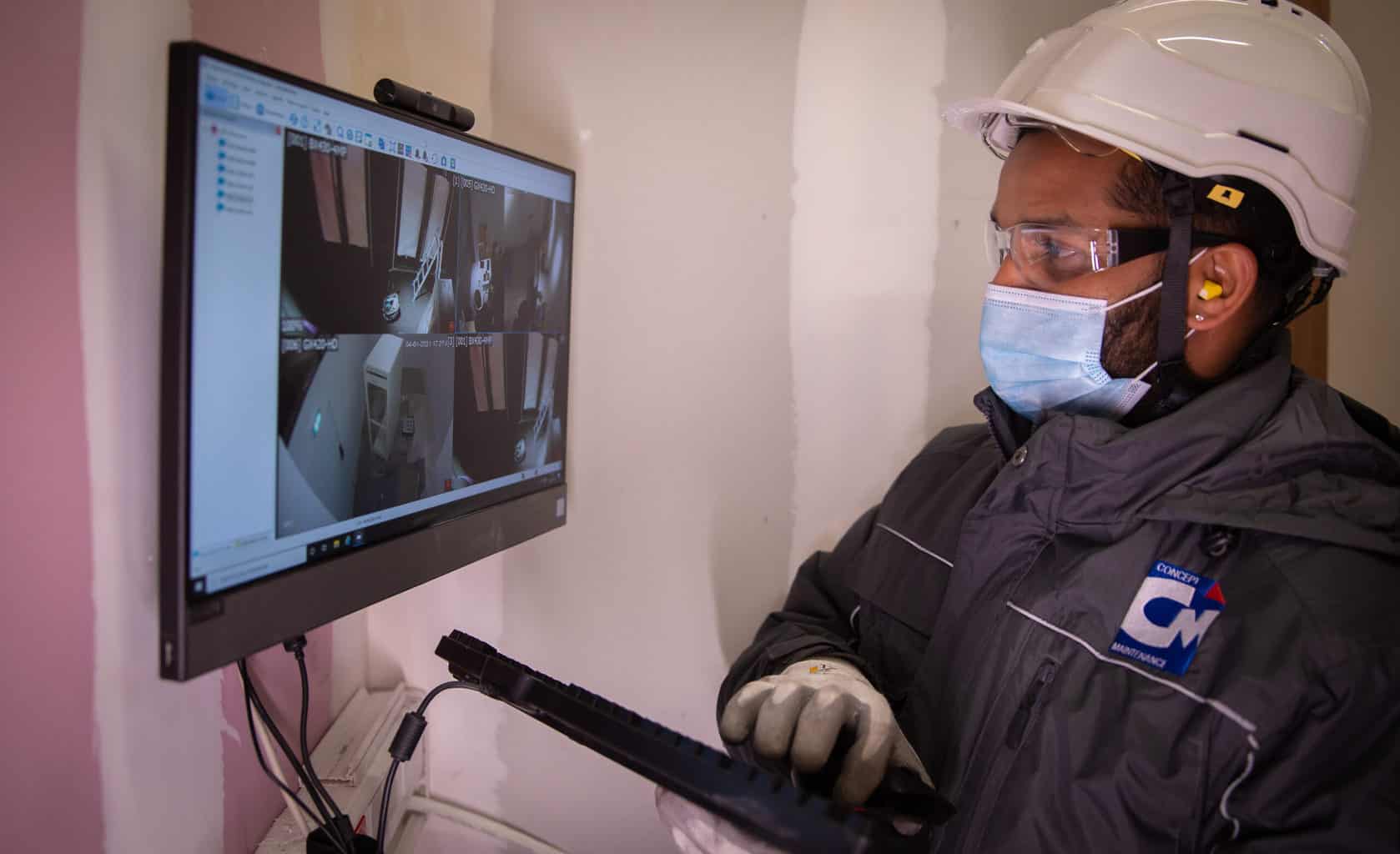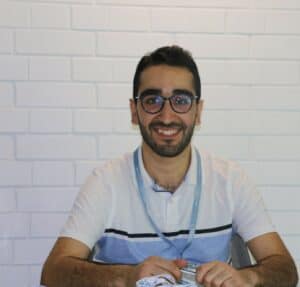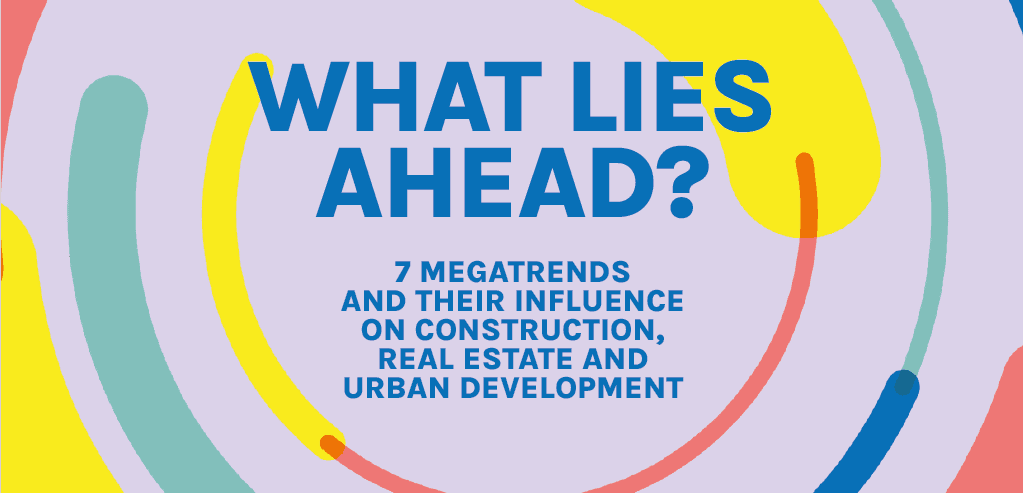
3 questions to Yassine Bouabdallaoui, PhD student at Centrale Lille within the Chaire Construction 4.0

#1 Your thesis is about artificial intelligence applied to maintenance. Can you tell us more?
For several years, the Facility Management industry has been evolving into a set of services, taking into account the needs of users and
Yassine Bouabdallaoui
Artificial intelligence to unleash the potential of maintenance and operation
“The building is an eco-system that integrates with the environment, machines and the people using it”, explains Yassine Bouabdallaoui. All these interactions create data. This data will allow us to optimise the building’s management and operation processes. This is the advantage of artificial intelligence: to optimise the traditional process of a building or to go even further by proposing new services and activities to users – clients and professionals. AI has real potential for all operation and maintenance processes: transforming traditional maintenance practices in order to move towards predictive maintenance, automating the management of client requests and services, providing support to the operator through decision-making tools on investment aspects, managing assets and resources… The possibilities are numerous! But we have to be careful about our choices, hence the scientific robustness of the approach. ”
#2 Who have you worked with at Bouygues Construction?
I work closely with Bouygues Construction R&D, especially the DesignLab team, researchers at Centrale Lille, and the Bouygues Energies & Services teams. Since my research is mainly based around the building’s operation and maintenance phase, I also work with the Bouygues Energies & Services teams, especially the Facility Management department. More specifically, I am in contact with the Facility and Services IS department, site managers and maintenance managers. Ludovic Reverdy, an employee at Bouygues Construction R&D has helped me enormously with connections, visiting sites and above all facilitating discussions with the Bouygues de Construction and Bouygues Energies & Services business lines. I have met operational staff in the field to listen to their needs and identify applications. At the end of this process, we selected three use cases: predictive maintenance of building equipment, automatised management of customer service requests and optimisation of building energy consumption.#3 What concrete work have you been able to carry out?
I conducted POCs (proof of concept, a prototype to quickly test the imagined solution, and iterate towards a more accomplished solution) with the Bouygues Energies & Services teams, to collect data, as well as testing and developing our predictive models. I carried out experiments on different sites managed by Bouygues Energies & Services, like for example, a POC in collaboration with the Bouygues Energies & Services Innovation teams, at the Saint-Quentin-en-Yvelines Vélodrome. The site had been equipped with several sensors to collect real-time data. We then implemented predictive maintenance algorithms in order to detect and report failures before they occurred. This work has been the subject of scientific publications, with the help of professors Zoubeir Lafhaj and Pascal Yim from Centrale Lille, and the R&D division at Bouygues Construction – Dr Laure Ducoulombier, manager of the Chaire Construction 4.0 for Bouygues Construction, and Belkacem Bennadji, product manager at Bouygues Energies & Services. In parallel, we tested my maintenance ticket management model based on automatic natural language processing (NLP), at the CHU in Caen. With the whole team in early March 2021, I launched another predictive maintenance experiment at the Paris Zoological Park, in Vincennes. This experiment will last 12 months, the necessary time to assess the developed solution according to seasonal changes (the effect of weather and holiday periods, etc.). Finally, with students from IG21 (Institut de Génie Informatique et Industriel de Centrale Lille), we developed a digital assistant (Chatbot), which guides the user in sorting their waste using, in particular, visual recognition techniques. The idea is to test our models in different contexts and introduce other AI solutions, in particular chatbots. The priority for us has been to carry out interesting and value-added experiments, to demonstrate the advantage of the proposed solutions and to continue enriching and developing our models. The next step is to integrate these models with the company’s business solutions to help improve the customer experience.And what’s next for Bouygues Construction? A word from Laure Ducoulombier
The thesis demonstrated the potential of artificial intelligence to assist operations and maintenance teams. It now remains to make the models robust, by training them with more data from the company, and to develop the user interface.
In addition, we will continue to research the right use cases for these technologies. For example, the waste sorting algorithm developed for building operations will also be adapted to the management of construction waste.
We are only at the start of using artificial intelligence to serve our businesses. Bouygues Construction’s R&D department, together with its partners, is exploring the possibilities offered by this technology. It will require a great deal of preliminary work to collect, clean up and structure our data. This work is currently being done by Bouygues Construction IT with the Data Lab and the Data Factory. Eventually, digital twins of our structures will contain data captured in real time and will make it possible to predict their evolution. It is up to us to understand the potential of these digital twins in order to meet customer expectations and improve our processes.
More reading
Read also





